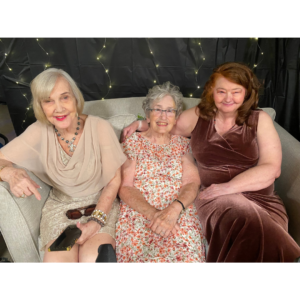Large parties are not for everyone
As a field, we are so focused on thinking and memory—and the functional care challenges changes in these abilities bring—that we ignore personality. After all, personality is another factor that contributes to what psychologists refer to as cognition, which is how a person knows the world.
I recently read Quiet: The Power of Introverts in a World That Can’t Stop Talking bySusan Cain. It is a thoughtful, well-researched look at people who tend to find large groups to be tiring or even stressful. They prefer quiet time to be alone and recharge, to analyze before they take action. They enjoy being in the background rather than standing in the limelight.
What struck me was how we—as a field, especially in the congregate setting—see these preferences as risk factors for depression and/or isolation and not as ways for introverts to be at their best. Any strengths-based approach to care has to re-orient typical institutional evaluations of these behaviors and understand their value as positive and adaptive to an environment that too often sees extrovert behavior as normality and any deviation as pathological.
This is not easily done, particularly since the traditional cultures of care consider group activities such as taking a meal or socializing as positive behavior. Avoiding groups, or a desire to withdraw from them after a short time, is seen as the elder’s failure to appreciate the good things being offered.
The history of our care practices is derived from economic models (where it is more cost-effective to hold recreational activities with a staff-to-resident ratio of 1:10 or more). Meals served in a large dining room, stereotyping what older persons in long-term care need and like, feed this mismatch that confronts introverts every day.
Introversion is not the polar opposite of extroversion. They exist, writes Cain, along a gradient of how much stimulation each individual needs to function and be comfortable. Introversion is also not synonymous with shyness, which can be painful. Introverts are not in pain, they merely have different preferences than the more extroverted among us about how much social stimulation they enjoy and will seek.
If we don’t recognize that elders come to us for care with important, defining attributes besides how well their memories work, we run the risk of requiring them to all conform to a stereotypic view of older persons, rather than honoring their historical preferences. Throughout our lives, each of us uses our strengths to adapt to our environments to the optimal degree of “fit” we can attain. Not everyone should have to act like they enjoy large parties if they really find them uncomfortable. It’s not about the party. It’s about the fit.
Judah L. Ronch, PhD, is the Dean of and a professor at the Erickson School, University of Maryland Baltimore County, which offers undergraduate and Master’s degrees in Management of Aging Services as well as online and live Executive Education programs and customized industry training. He can be reached at Ronch@UMBC.edu.
I Advance Senior Care is the industry-leading source for practical, in-depth, business-building, and resident care information for owners, executives, administrators, and directors of nursing at assisted living communities, skilled nursing facilities, post-acute facilities, and continuing care retirement communities. The I Advance Senior Care editorial team and industry experts provide market analysis, strategic direction, policy commentary, clinical best-practices, business management, and technology breakthroughs.
I Advance Senior Care is part of the Institute for the Advancement of Senior Care and published by Plain-English Health Care.
Related Articles
Topics: Activities











